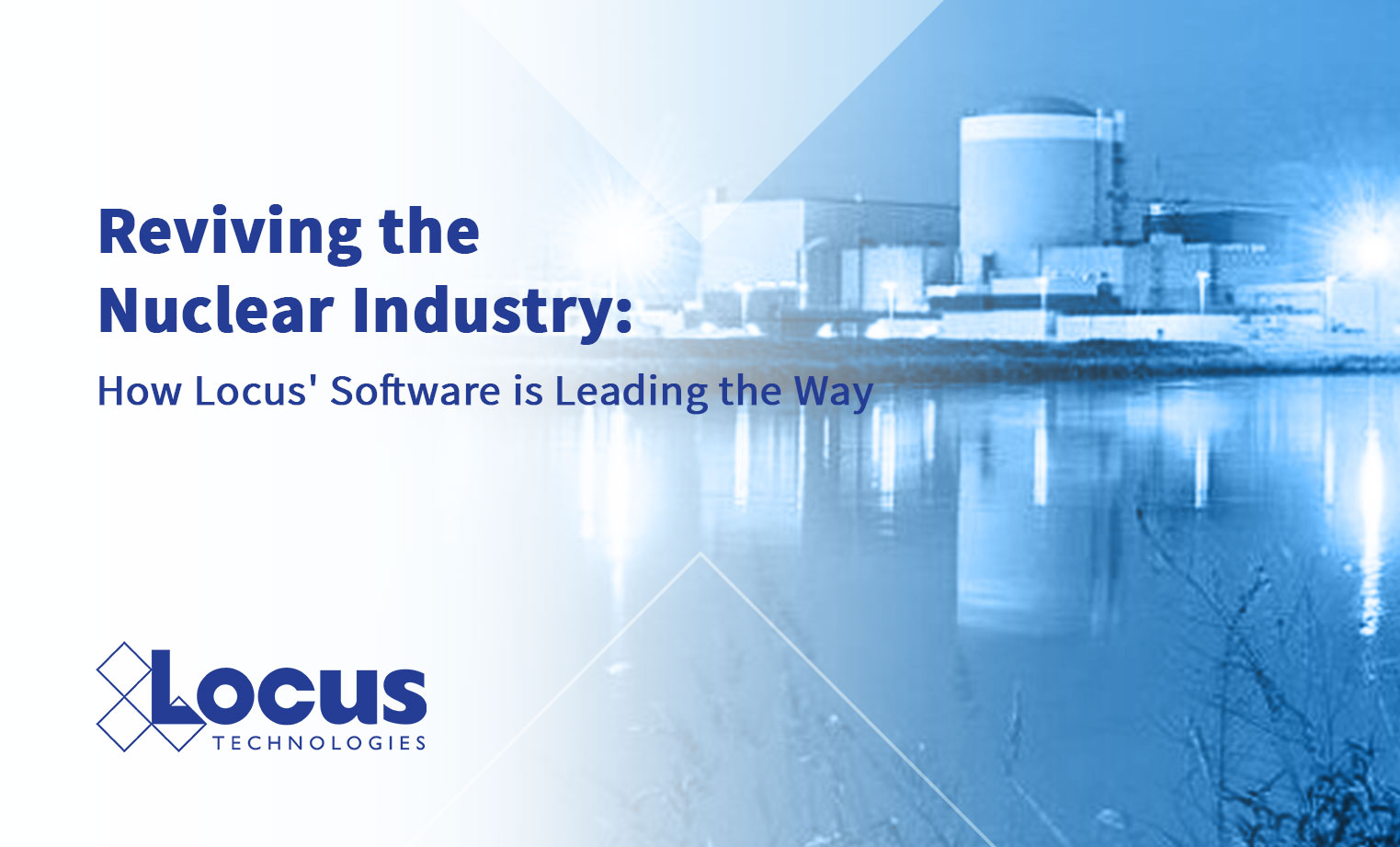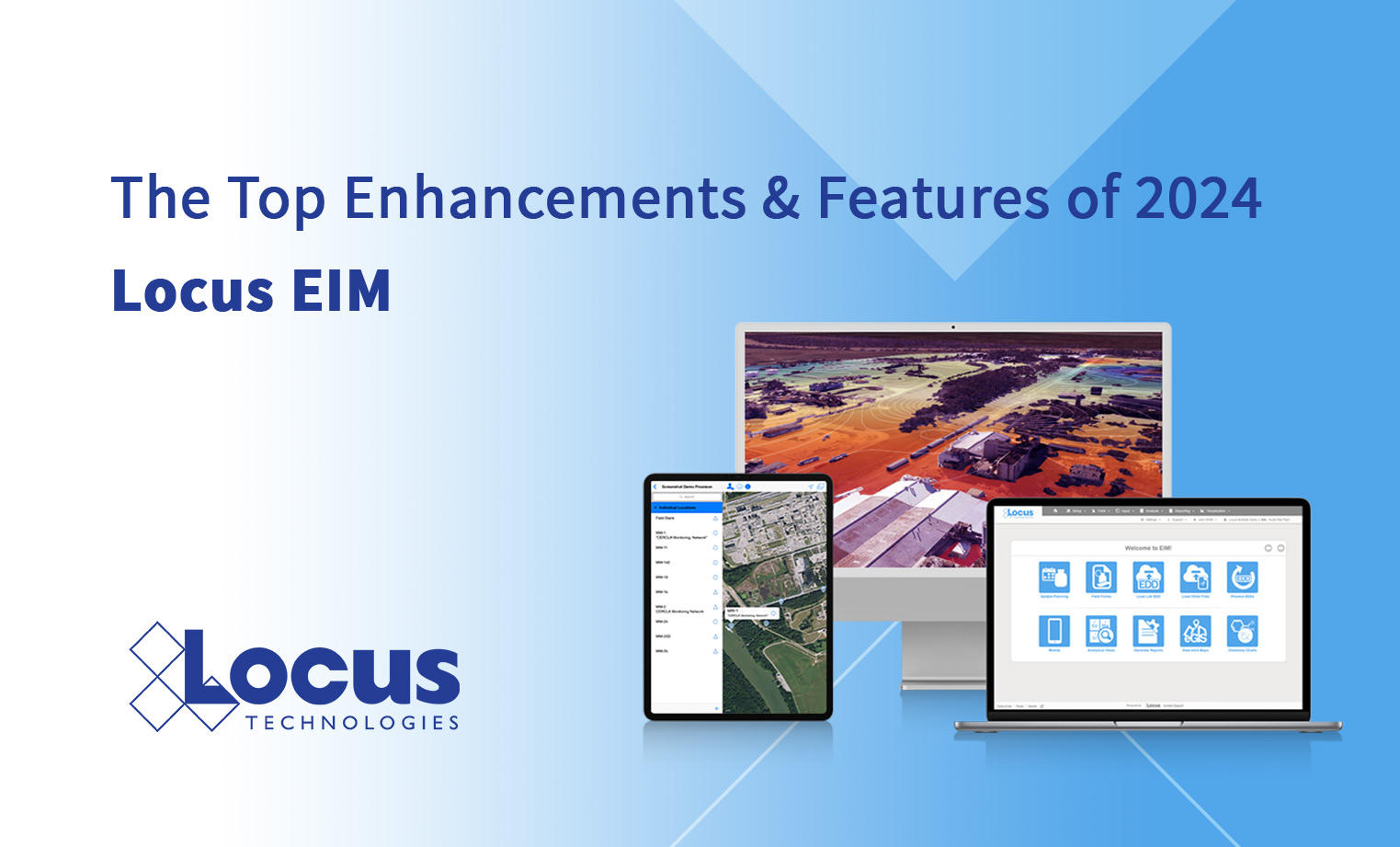Centralized Environmental Data: Lessons Learned from Electronic Health Record Software
I paid a small fortune for an MRI last month. The radiologist called to inform me that everything looked fine. Strangely, the data that informed her diagnosis remains in her possession, not mine. Granted, I’m not trained to interpret MRI images, so what practical use could I have for them? And who knows where I’d keep them. But they are detailed pictures of my shoulder. It seems logical that I would own the images and share them with the specialists and family members I choose or even delete them some day.
What if the ‘patient’ is a company and the metaphorical test results are their environmental sampling analysis?
A similar phenomenon occurs in the environmental and sustainability fields. Companies routinely enlist help from outside geologists, engineers, and other consultants to gauge the health of their air emissions, water discharges, waste, or remediation work. The company receives the diagnoses and guidance they need but then saddles the consultant with the test result data for greenhouse gas, water discharge, and contamination.
Wouldn’t it be more logical for a company (i.e., the “patient”) to hang onto its own “environmental health records?” Companies could gain a new source of business intelligence, and their consultants could sidestep the burdens that come with managing third parties’ data.
We can learn a thing or two from healthcare
In the healthcare industry, electronic health record (EHR) software like Epic’s MyChart™ has made great strides in changing the paradigm. A patient’s data is secured in the cloud and shared among health care providers, doctors, analytical labs, insurance companies, patients, and others who use MyChart or compatible EHR systems, provided the patient gives them permission to see the data. My orthopedist, GP, and neurologist can all view my MRI images, the radiologist’s notes, and all the other sensitive lab work and diagnoses that have accumulated for me over the years. That goes a long way towards enabling my various specialists to streamline processes and cross-diagnose my conditions (“Are my headaches related to my shoulder pains?”). But it begs the question: who owns my data?
Locus leads the charge in collaborative “environmental health records”
Locus provides a MyChart-esque solution for companies and their various consultants and suppliers. Locus clients hire their favorite geologists, engineers, and other outside consultants to deliver the same specialized services as always. Rather than leaving each consultant “holding the bag,” so to speak, all the sensitive lab and field data – like water quality, waste, and air emissions – gets stored in Locus. Our clients can invite specialists to log into their centralized Locus system to work with the aggregated data or with portions of it. And their consultants can use Locus Mobile to connect data collected on field workers’ devices to Locus. We protect the shared data and wrap it with powerful tools and scientific calculations to make the data meaningful and useful to every client. And when our clients choose to share their environmental data with providers outside their usual network, it’s a snap.
Locus unites companies and consultants within a centralized record
While you may lean on multiple consultants to perform site investigations and assessments on your behalf, it’s tough for any party to optimize efficiency and insights when the respective data is siloed. You might have one consultant for air emissions, one for water quality, and another consultant for spills. Each firm will possess one piece of your puzzle, and the right hand won’t know what the left hand is doing. (Yes, I am mixing metaphors.) While my doctors can connect the dots between my headaches and my tweaked shoulder, the consultants won’t have the same benefit – ultimately increasing your costs and risks. For example, that spike in air quality exceedances could be related to a recent spill or failed perimeter monitoring device. Or perhaps the water around every regional plant has high levels of benzene, indicating an addressable pattern and not a one-off incident. Enabling your consultants and environmental specialists to log in and digest all your data leads to incredible added value and comprehensive analyses.
Another issue that this approach solves is interdepartmental collaboration within the same company. The company’s organizational structure most likely does not follow the same pattern as environmental liability. For example, the department responsible for legacy contamination is often different from the department dealing with forward liability associated with carbon emissions. They may not even be aware of each other’s activities as is usually the case in large companies. Having a centralized system for all environmental data helps bridge this gap in real time.
Additionally, a company’s core operational practices could be improved if the managers responsible for them were aware of the environmental impacts they are creating, and the costs associated with compliance. Sometimes simple changes in business processes can have a large impact on current and potential future environmental concerns.
Locus enables specialists to focus on their substantive, specialty work
Clients who implement Locus cloud software always have a comprehensive view of their entire environmental picture, and they can be self-sufficient with the data administration. If they need a quick report of “YTD Facility GHG data,” they don’t have to interrupt a busy consultant for help. Our clients just press a few onscreen buttons to slice and dice their data and fulfill any regulatory requirement or respond to any investor query. Meanwhile, outside consultants can focus their efforts on substantive environmental work and solving actual problems the customer hired them for. (Imagine if every doctor you use had to develop their own health record management software to store your data—what a mess that would be). Our clients’ data remains protected within SOC 1 Type 2 and SOC 2 Type 2 security protocols in a robust, multitenant cloud database that boasts an impressive 99.992% uptime year after year. (I wish I had the same confidence in my MRI.)
Threading the needle between data disclosure and data privacy
Environmental records have many more stakeholders and reviewers than patient records. (That sparks an idea for a dystopian novel: citizens must submit annual reports to the American Heart Association or National Institutes of Health to prove they are physically fit – yikes! Can you imagine?!)
The burden of compiling data and reports in accordance with standard frameworks is significant. As regulations evolve and companies operate across multiple facilities or jurisdictions, the compliance and disclosure requirements become more onerous. Having the root data spread across multiple third-party servers adds unnecessary complexity. And assembling multiple partial reports from different third parties is no walk in the park. Likewise, regulatory and voluntary disclosures contain sensitive information, some of which may require context and finesse. Requiring a third party to walk that fine line on your behalf is a big ask. Locus empowers companies to be their own singular gatekeepers for all environmental data and every subsequent report.
Never overlook a source of business intelligence
Centralized “environmental health records” (and electronic health records in the medical field) show great promise for specialists to diagnose and treat “patients.” But things get exciting when patients (or companies) centralize and manage their own data.
Consider the surge in wearables and how empowering it is for individuals to track and monitor heart rate, steps, caloric intake, moods, sleeping patterns, and all sorts of vectors. It would be silly to wear a health tracker all day but only permit my doctor to view the data I’m generating. The datapoints on my wrist and in my grasp can inspire hourly, daily, or weekly behavior changes that add up. These adjustments to my personal “operations” help me avoid health disasters and limit costly interventions from my medical professionals.
The same goes for companies that control their own environmental data. Locus software, for example, provides powerful dashboards, data visualizations, GIS mapping, and custom reports. Our clients are empowered to derive actionable business intelligence that guides operational decisions, reduces enterprise risk, and illuminates areas warranting support from outside experts. With sustainability becoming integral to public relations, customer acquisition, corporate health, and investment viability, environmental data should be held dear in a centralized and secure environmental information system like Locus. And when clients choose to use Locus IoT technology to stream monitoring data from various web-connected devices, a similar effect to wearables is achieved: if there is exceedance in allowed emissions, the company catches it first and can act on it promptly.
The next frontier in health data
Electronic health records and environmental health data share many attributes. Both are complex domains with multiple parties needing different views into records. Both face tough privacy, security, access, and data interoperability challenges. Both involve interaction with analytical laboratories, streaming instrumentation data, sensors, data interpretations by specialists, data validation, image interpretation, complex reporting, scheduling, and highly regulated markets. Additionally, both are rich sources of anonymized data that can reveal a whole new level of insight on a macro level – especially when the datasets are overlapped. Consider the potential for artificial intelligence to predict trends pertaining to personal health and planet health and to identify life-saving correlations. That’s the next frontier in this intertwined story and the next chapter in this blog (coming soon).



